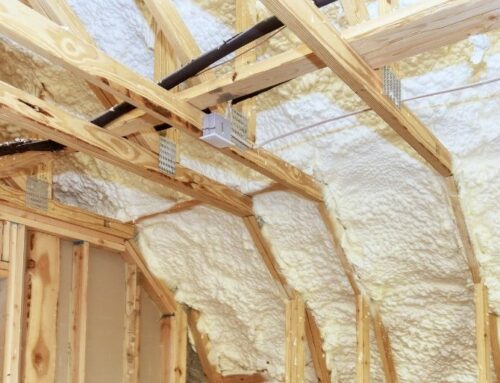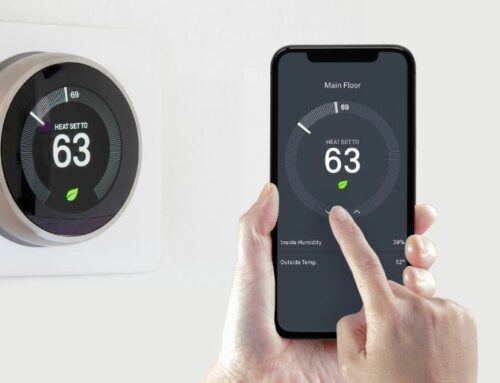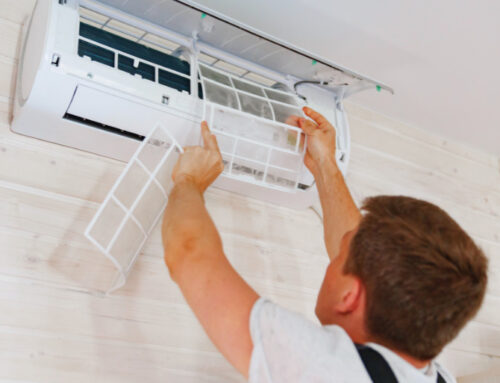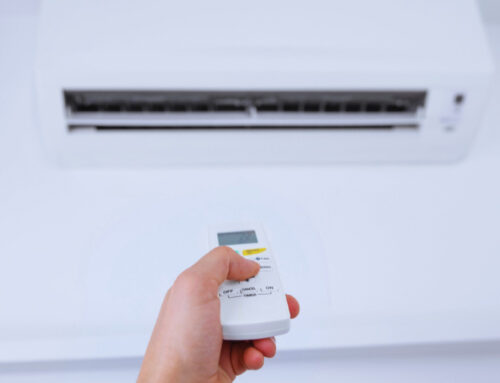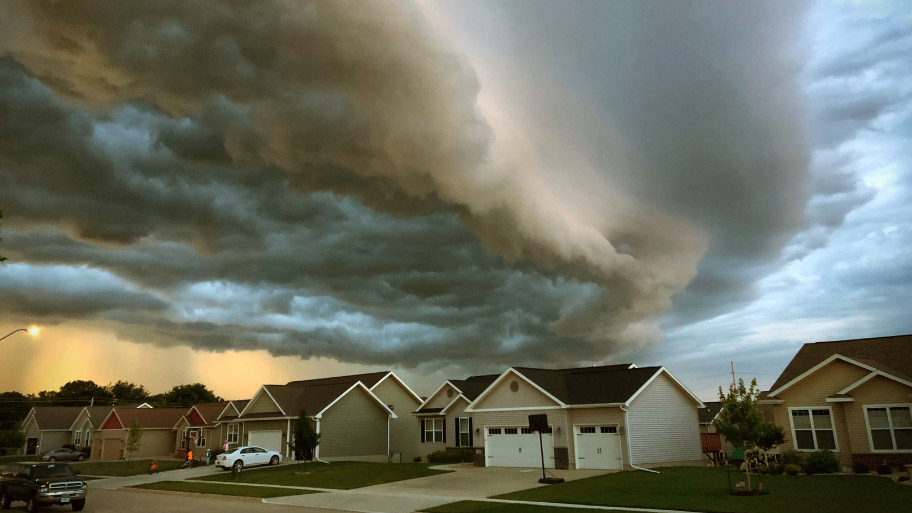
Extreme weather in Iowa—whether it’s severe storms, heavy winds, or sudden freezes—can wreak havoc on your HVAC system.
Without proper preparation, these conditions may lead to unexpected breakdowns, higher energy bills, or costly repairs.
But don’t worry—protecting your system doesn’t have to be complicated.
With a few simple and easy steps and periodic maintenance, you can ensure your HVAC system keeps your home comfortable no matter the weather. This guide will show you exactly how to get started.
Quick Steps to Protect Your HVAC System Before a Storm
Now that you understand how Iowa’s extreme weather—common in places like Ankeny and the surrounding areas—can impact your HVAC system, let’s dive into the easy actions you can take to prepare your HVAC for stormy weather and protect it when a storm is approaching.
1. Turn Off Your HVAC System
Power surges from lightning or grid fluctuations during a storm can severely damage your HVAC system’s electrical components. In areas like Ankeny, where severe thunderstorms are frequent, it’s important to take action.
To protect your system, switch it off at both the thermostat and the circuit breaker. This simple step ensures your HVAC system remains safe, even if a storm causes a sudden surge.
2. Protect Outdoor Units from Wind and Hail
High winds and hail, which are common during Iowa storms, can physically damage your outdoor HVAC components. Preparing your HVAC unit for stormy weather with a durable, storm-ready cover is an essential precaution.
Additionally, clear loose debris like branches or patio furniture in your yard, as they could be thrown into your unit by strong winds.
3. Prevent Flood Damage with Raised Platforms
Heavy rains during storms, particularly in lower-lying neighborhoods can lead to flooding that damages HVAC components. If your outdoor unit is installed in a flood-prone area, consider elevating it on a sturdy, weather-resistant platform.
This extra precaution can help you avoid expensive repairs and keep your systems running efficiently through the stormy seasons.
Essential Maintenance for Extreme Weather
Taking care of your HVAC system ahead of extreme weather ensures it runs smoothly when you need it most.
These maintenance steps not only extend your system’s lifespan but also help you avoid unexpected breakdowns during Iowa’s harsh conditions.
1. Schedule Regular Inspections
Extreme weather can strain your HVAC system, and unnoticed issues might worsen over time. Scheduling regular inspections with a trusted local professional as part of your preventive maintenance plan ensures that your system is prepared for any upcoming storms or temperature swings.
In areas like Ankeny, IA, where weather can change rapidly, these inspections are key to identifying small problems—such as worn-out components or airflow restrictions—before they turn into costly repairs.
Regular tune-ups can also boost your system’s efficiency, saving you money on energy bills.
2. Replace Air Filters and Check Insulation
A clean air filter is important for ensuring your HVAC system works effectively, especially during extreme weather when the system works harder.
Replace your air filters every 1–3 months to ensure good airflow and reduce stress on the system.
For homeowners in Ankeny and the surrounding areas, where fluctuating temperatures are common, checking your home’s insulation is just as important.
Proper insulation helps maintain indoor temperatures, easing the load on your HVAC system and keeping energy costs in check. Pay special attention to attics, doors, and windows, as these areas often allow heat or cold to seep in.
How to Keep Your HVAC Running During Power Outages
Experiencing a power outage during extreme weather can be challenging, especially when it disrupts your HVAC system’s operation. To maintain comfort in your home during such times, consider the following backup power solutions:
1. Backup Generators
Backup generators are reliable devices that supply electricity to your home during outages, ensuring continuous operation of essential appliances, including your HVAC system.
Considerations:
2. Home Battery Backup Systems
Home battery backup systems store electricity for use during power outages, providing a quieter and more environmentally friendly alternative to generators.
Considerations:
3. Choosing the Right Solution for Your Home
Home battery backup systems store electricity for use during power outages, providing a quieter and more environmentally friendly alternative to generators.
Consulting with a local HVAC professional can provide personalized recommendations tailored to your home’s specific needs, ensuring you remain comfortable and safe during power outages.
Why You Should Prepare Your HVAC System for Iowa’s Extreme Weather
Iowa’s climate is notorious for its extremes, from scorching summers to frigid winters, often accompanied by severe storms. These conditions can place significant strain on your HVAC system, leading to potential breakdowns when you need it most.
Local Weather Risks:
Professional Expertise:
Regular maintenance by HVAC professionals ensures your system is ready to handle Iowa’s challenging climate.
Technicians can recognize and address possible issues before they escalate, ensuring efficient operation and extending the lifespan of your system.
Frequently Asked Questions About Preparing Your HVAC System
Get Expert Help to Prepare Your HVAC System
Ensuring your HVAC system is ready for Iowa’s extreme weather is essential for maintaining comfort and safety in your home. At Bryant Iowa Heating & Cooling, we specialize in preparing HVAC systems to withstand the unique challenges of Ankeny’s climate.
Why Choose Us?
Don’t wait for extreme weather in Iowa to take a toll on your HVAC system.
Contact Bryant Iowa Heating & Cooling today to schedule a comprehensive inspection and ensure your home remains comfortable year-round.
Phone: (515) 963-5311
Address: 128 SE Shurfine Dr, Ankeny, IA
Let our experienced professionals provide the peace of mind you deserve, knowing your HVAC system is in expert hands.
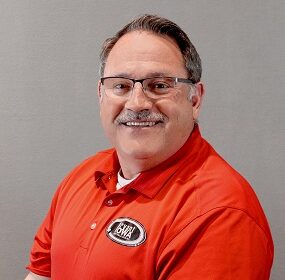
About the Author
For over 30 years, DuWayne McDaniel has been the trusted name behind Bryant Iowa Heating and Cooling in Ankeny, IA. With a Masters in HVAC and Hydronics, NATE certification, and EPA licensing, DuWayne brings unparalleled expertise to residential and commercial HVAC services. His commitment to 100% customer satisfaction has earned him the BBB Torch Award and made Bryant Iowa a Bryant Factory Authorized Dealer. DuWayne’s deep understanding of HVAC needs ensures year-round comfort for homes and businesses alike.

